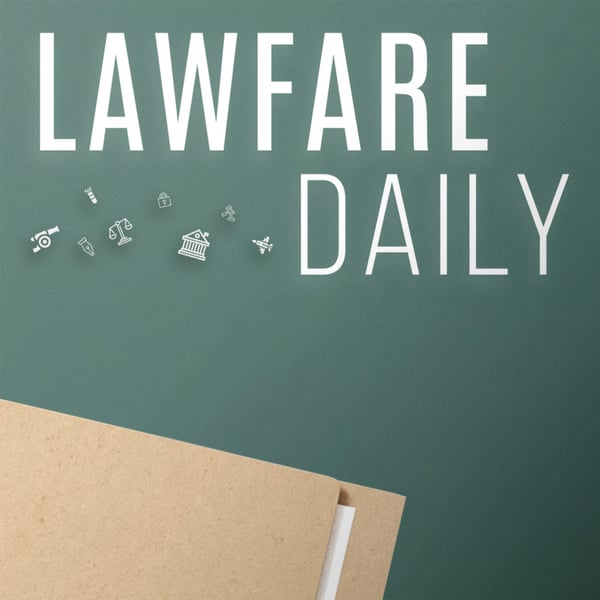Episode #16: Kent Roach on the 9/11 Effect
The Lawfare Podcast
The Lawfare Institute
4.7 • 6.2K Ratings
🗓️ 22 July 2012
⏱️ 54 minutes
🧾️ Download transcript
Summary
Lawfare's Alan Rozenshtein interviews University of Toronto Professor Kent Roach about his new book, The 9/11 Effect: Comparative Counter-Terrorism.
Support this show http://supporter.acast.com/lawfare.
Hosted on Acast. See acast.com/privacy for more information.
Transcript
Click on a timestamp to play from that location
| 0:00.0 | The following podcast contains advertising to access an ad-free version of the LawFair |
| 0:07.2 | podcast become a material supporter of LawFair at patreon.com slash LawFair, that's patreon.com slash |
| 0:16.8 | LawFair. Also check out LawFair's other podcast offerings, rational security, chatter, LawFair |
| 0:25.6 | no bull, and the aftermath. |
| 0:55.6 | Hello and welcome to the LawFair podcast, I'm Benjamin Wittis. Today's subject is a new book by |
| 1:20.8 | University of Toronto Law Professor Kent Roach entitled the 9-11 Effect, Comparative Counterterrorism. |
| 1:28.1 | The book, recently published by Cambridge University Press, takes a look at the response of the |
| 1:34.8 | United Nations and a bunch of countries to the 9-11 attacks, examining the common themes and |
| 1:41.0 | the responses of democratic countries. Roach, who is the editor in chief of Criminal Law Quarterly, |
| 1:48.4 | talked with LawFair's Alan Rosenstein the other day by phone. |
| 1:52.4 | Professor Roach, thank you so much for joining us today. So your book, the 9-11 Effect, is a very |
| 2:02.8 | rigorous and in-depth comparative study of counterterrorism, law and policy, post 9-11. |
| 2:09.2 | And the first thing I'd like to ask is if you could just give a summary of your project in this |
| 2:15.6 | book and your general approach and what do you think the main conclusions or the main takeaways |
| 2:21.8 | are from the book? Well, the book represents more or less a decade of research and service in |
| 2:31.7 | a lot of these areas. So I think that the main approach has been as an academic to say how can we |
| 2:40.9 | measure the effect that 9-11 made on a global basis? Now the book doesn't attempt to look at |
| 2:50.4 | obviously every jurisdiction but I think it does look at about 12 or 13 and it looks quite closely |
| 2:58.8 | at the United Nations. So in terms of the main conclusions of the book, I think I do find trends |
| 3:08.9 | towards increased state power in an attempt to prevent another 9-11 but that in each of these |
| 3:17.4 | countries there's a lot of continuity with respect to security practices before 9-11. |
| 3:29.3 | I also find that the UN Security Council has been a real driver of counterterrorism policy |
... |
Please login to see the full transcript.
Disclaimer: The podcast and artwork embedded on this page are from The Lawfare Institute, and are the property of its owner and not affiliated with or endorsed by Tapesearch.
Generated transcripts are the property of The Lawfare Institute and are distributed freely under the Fair Use doctrine. Transcripts generated by Tapesearch are not guaranteed to be accurate.
Copyright © Tapesearch 2025.

